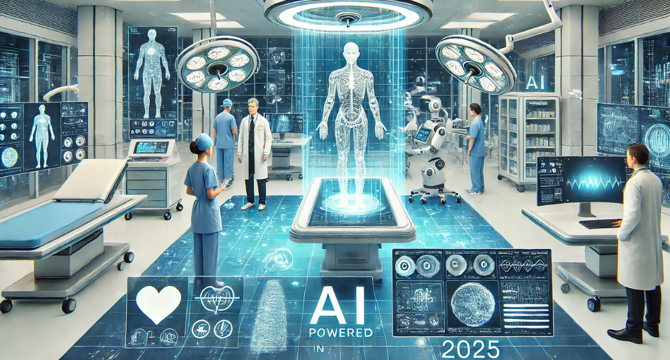Medium
1M
76

Image Credit: Medium
Transforming Healthcare with AI: Innovations Shaping the Future of Medicine
- AI in healthcare has revolutionized diagnostics by analyzing medical data like images, genetic information, and records to detect patterns unseen by human clinicians.
- AI-driven diagnostic tools excel in fields like radiology, pathology, and ophthalmology, detecting diseases like cancer early and with higher accuracy than traditional methods.
- AI identifies genetic markers for diseases, predicts risk profiles, and enables proactive healthcare measures before symptoms manifest, improving patient outcomes.
- Personalized medicine benefits from AI's ability to analyze individual variations, recommending tailored treatments based on genetic, environmental, and lifestyle factors.
- AI algorithms assess genetic makeup, lifestyle habits, and treatment outcomes to determine effective drug regimens, optimizing cancer treatment based on genetic mutations.
- AI expedites drug discovery by predicting compound interactions, reducing time and costs. It enhances patient care through wearable devices, monitoring vital signs, and alerting about concerning trends.
- AI analyzes data to predict insulin needs, recommends lifestyle changes, and enables efficient communication through virtual health assistants for appointment scheduling and medical queries.
- In healthcare administration, AI streamlines billing, scheduling, claims management, and medical coding. It predicts patient demand, optimizes resource allocation, and identifies fraudulent claims.
- AI assists in managing healthcare supply chains by predicting demand for medical supplies to prevent overstocking and optimize resources effectively.
- However, AI integration in healthcare poses challenges like data privacy, biases in decision-making due to training data, and regulatory compliance to safeguard patient data and ensure fair outcomes.
Read Full Article
4 Likes
For uninterrupted reading, download the app